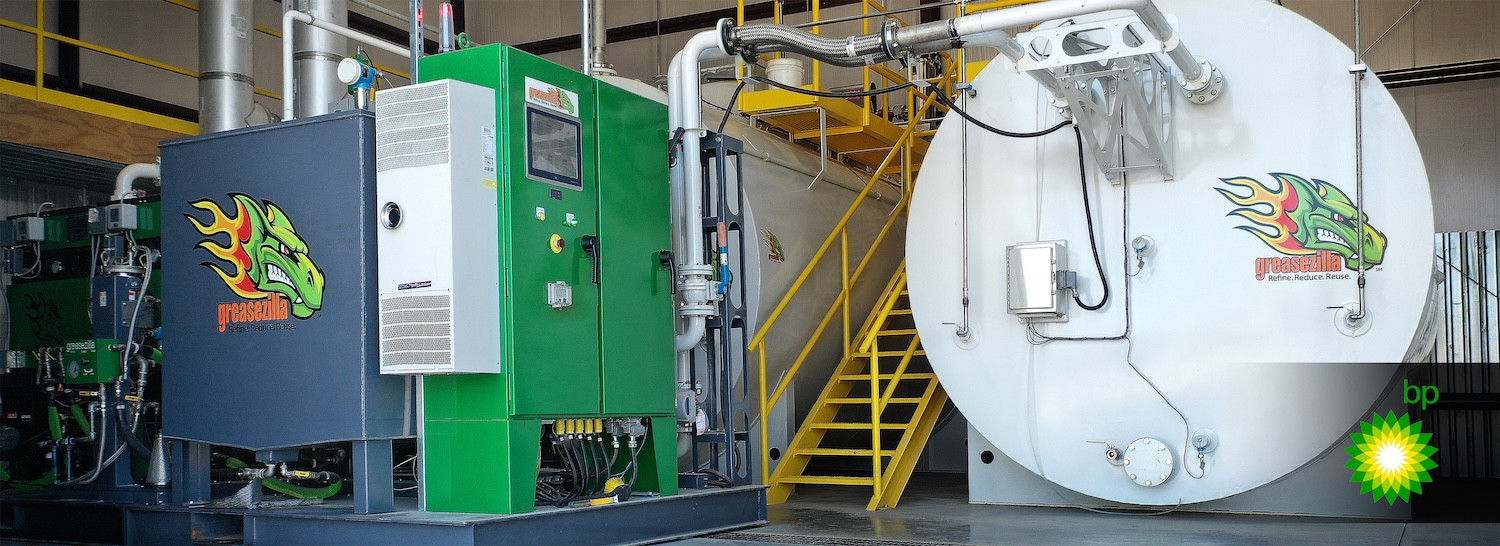Downey Ridge Environmental Company (“Greasezilla”) and bp announce a groundbreaking agreement that will enable the capture and extraction of brown grease waste as a feedstock for biofuel production, marking a step forward in sustainable energy production. As part of the agreement, bp will finance the expansion of Greasezilla’s production facilities to support the delivery of brown grease feedstock to the market, aimed at furthering the renewable diesel (RD) and sustainable aviation fuel (SAF) markets.

Greasezilla and bp to transform brown grease waste into biofuels
Transforming Waste into Energy
Greasezilla’s industry-leading technology extracts nearly pure brown grease from grease trap waste and refines it into biofuel feedstock. This can play a pivotal role in the future development of a nationwide platform to manage fats, oils, and grease (FOG), waste material derived from commercial kitchens and commodity processing that has typically been incinerated or landfilled until now. Brown grease poses a costly challenge for many cities nationwide, as its disposal is both expensive and complex.
This push to fund up to 40 new FOG receiving stations, with up to $5m per site, using proprietary Greasezilla technology will make a meaningful difference in capturing and converting this waste material into a valuable commodity that is covered by the Jacobsen price reporting as feedstock for biofuel production, such as RD and SAF.
Diverting Waste from Landfills
Grease trap waste is most commonly disposed of in landfills, where it releases methane into the air. Combined with rainwater, it seeps down over buried wastes, leaching or drawing out their chemicals and toxic constituents. This leachate can contaminate surrounding soils and aquifers.
From a solid waste perspective, Greasezilla’s innovative process mitigates the environmental impact of grease trap waste disposal. This diversion also helps alleviate landfill overcapacity and cost problems.
Mutual Benefits and Shared Goals
Greasezilla’s specialized technology and bp’s biofuel production capabilities create a synergy of complementary expertise that enhances efficiency and quality, while helping both companies progress their sustainability goals through innovative energy solutions.
While promoting environmental stewardship, Greasezilla benefits from bp’s global network, enabling wider biofuel distribution, while bp expands its access to lower carbon feedstock to help meet growing SAF demand.
Investment and Future Plans
bp’s initial investment supports the scaling of Greasezilla’s operations and integration into bp’s competitively positioned supply chain. Any subsequent phases would be expected to focus on expanding production capacity and further developing the technology to maximize efficiency and environmental benefits.
Nigel Dunn, Senior Vice president, biofuels growth at bp, sums it up. “Bioenergy is one of bp’s transition growth engines and we aim to increase our production of biofuels like SAF. Working with Greasezilla and their innovative technology helps provide the low carbon feedstock for processing in our refineries and meets the biofuels needs our customers increasingly want.”
Greasezilla President Ron Crosier agrees. “We’ve sought an ally in energy who shares our commitment to the environment, and our vision for developing Greasezilla. bp’s vision aligns with ours, and we couldn’t be more pleased.”
For more information, visit www.greasezilla.com







